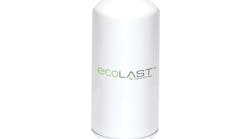Maintaining clean lube oil in today’s emissions-compliant engines is a tall challenge, notes Martin Barris, engine liquid & hydraulics product director at the Donaldson Co. “With the potential for multiple sources of contamination—externally and internally generated debris, oil degradation and even combustion by-products—lube oil filters are required to perform in a wide range of contaminant conditions,” he says. “These challenges are magnified further in extended service applications where lube oil filter design greatly impacts service life.”
Ted Loftis, director of engineering at Cummins Filtration, which makes Fleetguard brand oil filters, agrees that lube filtration is more important today. “While contamination is introduced into the lube system due to the combustion process, engine wear and spent additives,” he states, “the advent of some emissions control strategies have led to more contaminant entering from the combustion chamber and making its way into the lube oil.”
It is generally understood that finer fibers are required to attain finer filtration, relates John Gaither, director of heavy-duty engineering for Fram Filtration, makers of Luber-finer heavy-duty oil filters. “Synthetic media, such as micro-glass and polyester, have proven to offer exceptional filtration and can provide high-filtering efficiency without increasing flow restriction,” he says.
“Additionally,” Gaither continues, “some of today’s lube oil filters have been designed to provide a controlled release of a specially formulated additive into the oil that is designed to offset the levels of acid and oxidation, especially those found in heavy-duty diesels with high exhaust gas recirculation (EGR) settings. The additives support longer drain intervals in acid-challenged engines.”
Donaldson’s Martin Barris calls the use of synthetic, wire-backed filter media in lube oil filters a “significant trend for high performance during extended drain intervals. Synthetic filter media fibers and resin system adhesives are far less susceptible to the damaging effects of long-term exposure to hot engine oil,” he explains.
Kevin Kroger, president and COO of Puradyn Filter Technologies, points out that when it comes to meeting the goals of reducing solid contaminants and providing proper lubrication for extended periods of time, bypass oil filtration is nearly impossible to beat. “Bypass oil filtration reduces engine wear [while] optimizing performance,” he says. “Companies that use bypass oil filtration have reported as much as an 84% reduction in lubricant oil consumption with the same percentage reduction in used-oil disposal.”
Filter manufacturers also go to great lengths to test products. “Thorough testing using industrial standards and tests on vehicles in actual applications allow for a complete understanding of performance,” says Brad Long, lube product line engineer at Cummins Filtration.
International Organization for Standardization (ISO) test procedures are now the norm for rating engine oil filters, relates Fram’s John Gaither. “As engine oil cleanliness requirements increase, so does the complexity of test procedures and particle counters to measure efficiency,” he explains. “No longer is a basic efficiency rating sufficient when wear particles less than 10 microns have been identified as damaging.”
“Today’s engine oil filters are designed and tested for use with modern emissions control systems, which generally [produce] higher oil temperatures and higher levels of soot in the oil,” says Edward Covington, vice president of quality assurance at WIX Filters. “Filtration media, sealing materials and structural components are evaluated and selected based on lubricating oils and operating conditions.”
Emissions-compliant engines also require specific maintenance procedures, Covington notes. “This includes an appropriate lubricant, filter and change interval according to the conditions in which the engine is operated,” he says, “and regularly scheduled fluid analysis can provide application-specific feedback for determining the correct oil and filter change interval.”
“Today’s lube oils perform multiple tasks of lubricating, cooling, suspending soot, neutralizing acids, cleaning surfaces, and controlling corrosion,” notes Barris. “Correspondingly, today’s oil filters are called on to separate and contain finer levels of contaminant in hotter engine oil for extended periods of operation.”
Expectations for oil filter performance and quality have both increased, leading suppliers to develop products capable of meeting those challenges. As a result, choosing the right oil filter is more important than ever before.
For more information, visit these websites:
Baldwin Filter
www.baldwinfilter.com
Champion Laboratories
www.champlabs.com
Cummins Filtration
www.cumminsfiltration.com
Donaldson Filters
www.donaldsonfilters.com
Fram Filtration
www.luber-finer.com
Puradyn Filter Technologies
www.puradyn.com
Purolator Heavy Duty
www.purolatorheavyduty.com
Racor Div./Parker Hannifin
www.parker.com
WIX Filters
www.wixfilters.com



